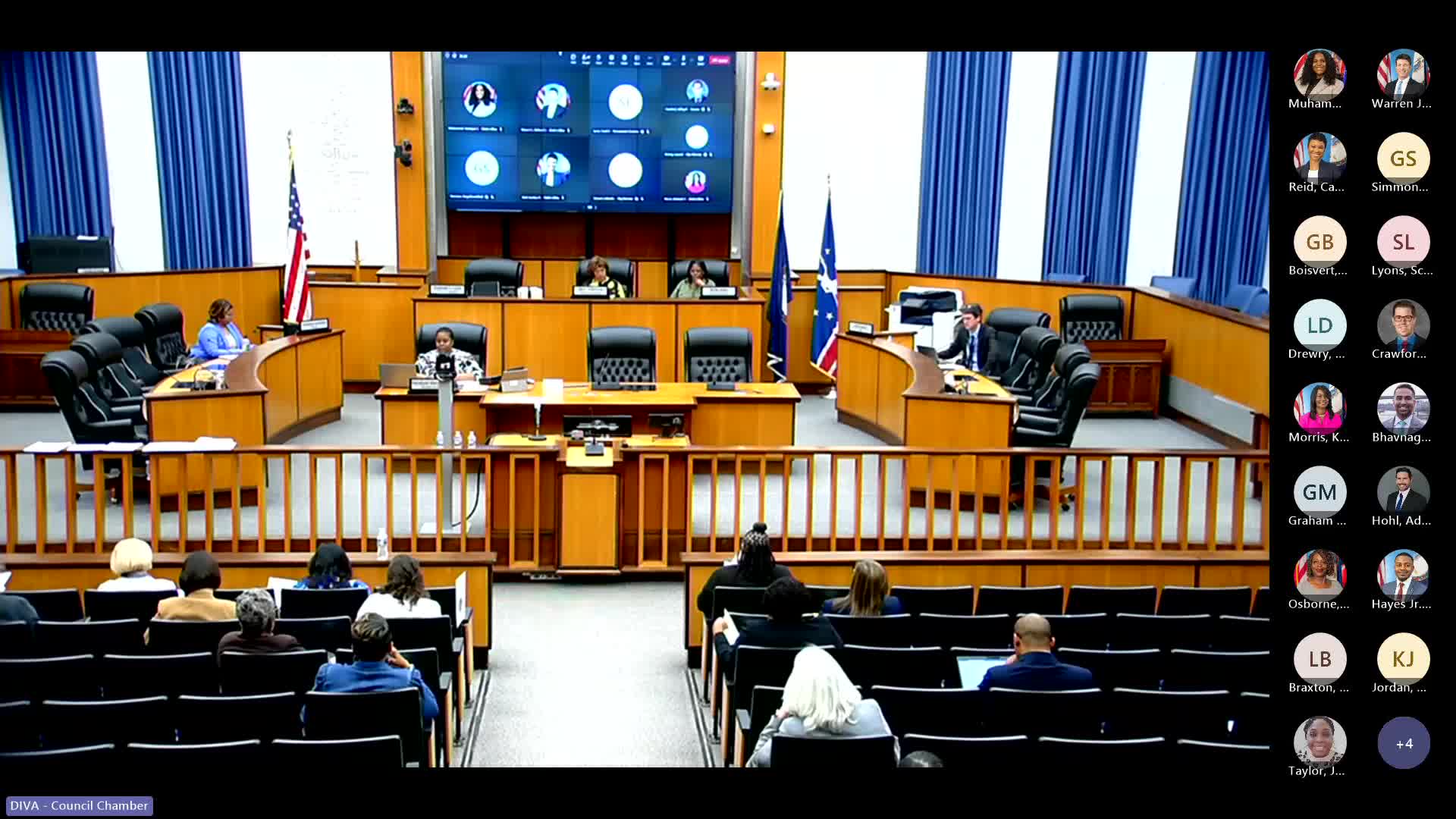Greater Richmond Partnership outlines new five-year plan, flags perception and air service gaps
Get AI-powered insights, summaries, and transcripts
Subscribe
Summary
Jennifer Wakefield, president and CEO of the Greater Richmond Partnership, presented a regional strategy that emphasizes lead generation, research, talent attraction and efforts to secure more direct flights to better place Richmond against peer markets.
Jennifer Wakefield, president and CEO of the Greater Richmond Partnership (GRP), presented the organization’s new five-year strategic plan and market research to the Finance and Economic Development Standing Committee on March 1.
“We work to attract new companies to the region by providing in-depth market data, marketing the region globally, and then generating economic opportunities,” Wakefield said. She described GRP’s new plan as centered on four pillars: business recruitment and cluster development; world-class research and market intelligence; amplifying awareness and talent attraction; and elevating regional competitiveness.
Wakefield highlighted recent results: “Since 1994… we have worked on 560 projects, resulting in 55,000 jobs [and] $13,900,000,000 in capital investment,” she said. She also cited more recent three-year figures the GRP supplied to the committee: 28 projects, about 6,859 jobs and roughly $2.9 billion in capital expenditures.
Wakefield stressed that perception remains a constraint for the Richmond region. She said consideration of Richmond by corporate executives rose from 2% in 2021 to about 30% in 2024. Among site selection consultants — advisers who often guide corporate location decisions — Wakefield said consideration rose to about 60% after focused outreach. “When site consultants were asked, Richmond is at 7.3 on a scale of 1 to 10,” she said.
She noted a recurring concern among site consultants about airport service: “Where site consultants think our largest weakness is… location, infrastructure, airport, lack of direct flights,” Wakefield said. GRP said it is working proactively with Richmond International Airport and accompanying airline outreach with research to support additional direct routes.
Committee members thanked GRP for regional collaboration and asked for locality-specific pipeline data. Chair Robertson asked whether GRP could provide more detailed breakdowns for each of the four local government partners — the city of Richmond and the counties of Chesterfield, Hanover and Henrico — so the city can better target recruitment and identify Richmond-specific opportunities.
Wakefield said some perception data are not available at the locality level but that GRP provides quarterly project analyses to local economic development partners and can supply additional data on request.
Ending: Committee members asked the administration and GRP staff to follow up with additional or locality-specific information and to place GRP’s presentation materials in the clerk’s office record for distribution to council members.
